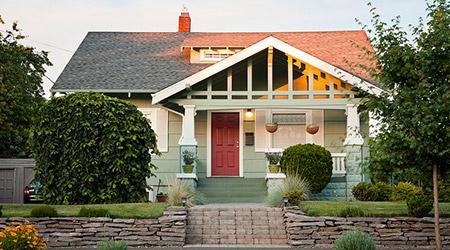Renting out a room in a home you own is a great way to bring in some additional income, which can help with a mortgage, remodeling you want to do to your property, or saving for retirement. But there’s a lot of preparation that goes into becoming a landlord, especially if you will be living under the same roof as your tenant. Check out the following eight things you must do before renting out a room in your house.

-
Know the laws
The first thing on your to-do list should be determining whether or not it is legal in your city to rent out a room in your home. The landlord-tenant laws for each state are different, so begin your research by calling city hall, the county commissioner’s office, or your city’s housing department. The website for the U.S. Department of Housing and Urban Development is a bit complicated to navigate, but can provide you with information specific to your states’ landlord-tenant laws. Be aware that your local zoning laws may determine how many non-related adults can live in your home.
-
Purchase homeowner’s insurance
A standard homeowner’s insurance policy covers an owner-occupied, single-family home, not a home where a room is being rented out to a tenant. Such a policy will not cover damages your tenant may cause to your property or injuries they may suffer from falling down your property’s stairs. Purchase a landlord insurance policy, which generally costs 15% to 20% more than a standard homeowner’s policy. Your peace of mind is definitely worth the extra expense.
-
Make sure your space is up to code
Be sure the room you plan to rent out is up to code and meets the standards of local ordinances. Your city’s Code Enforcement Department can provide you with this information. Skipping this step could result in your being fined for a number of violations, so take the time to do the research. And don’t be surprised if you discover you need to do some remodeling to your home before you can legally rent out a room.
-
Figure out the rent amount
When it comes to the rent, you don’t want to charge too much, but you don’t want to charge too little either. Be sure to take time to itemize all of the expenses you are incurring as the landlord, including the costs of utilities and trash collection. To get an idea of what the renters market is like in your locality, check out rooms for rent on Craigslist and visit local brokers to see what other landlords are charging their tenants.



